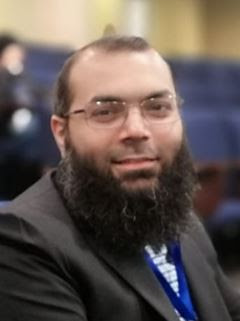It was a Thursday evening, and we were nearing the end of a long neurosurgery operating list. Our last case was the resection of a large frontal brain tumor and we were about to begin the closure. As the scrub nurse handed me a suture - vicryl 4'0, loaded on a needle holder, my intern politely asked, “Sir, can I please close the dural layer?" I was surprised by this abrupt request as I had not expected her to ask of this. It was only the third time that she had scrubbed into a neurosurgical case. She was an enthusiastic trainee who was keen to learn, passionate to pursue neurosurgery specialist training and her performance as an intern had been reasonably well. Being blessed with a patient attitude and a positive inclination towards teaching, I did not immediately say no.
.jpeg)
Instead,I replied, “It's a marathon, not a sprint. You may do it some other time." I could appreciate her visibly confused reaction behind her surgical mask to my indirect refusal. She continued to follow the thread while I sutured the dural layer. I did let her apply the skin sutures at the end. Later, as we sat down to write the surgical notes, I explained to her the reasons for allowing her to do limited steps during the procedure.
This is my last year as a neurosurgery resident and after having gone through all the different phases of training, I have learnt that there is no shortcut to learning surgery. It's not a 100 meter sprint. Rather, it's a several years long marathon with hurdles every few meters and everyone who reaches the end is a winner, irrespective of the time taken. The key to finish this marathon is to stay steady and get back up after each fall instead of wailing at the hurdles.
I often hear junior residents complaining that they do not get to operate more often during the initial years of training, and these dissenting voices have been growing over the last few years. Perhaps it is the trickling effect of our society that is growing increasingly impatient as a whole. Performing surgery is a privilege, as my mentors would say. One must earn the entitlement to this privilege by showing profound perseverance, self-reflection, empathy, respect and modesty. It is a process where the appetite to learn, commitment, dedication, reading, observing, questioning and patiently spending time in the operating room are all important ingredients, among others. As Malcolm Gladwell has explained in his book, Outliers: The Story of Success, “if one spends 10,000 hours to perform a task, he or she can achieve the required expertise."
A few weeks back, as I was positioning a patient on the operative table for a craniotomy, a junior resident came to the room and asked, “Sir, I want to scrub in this case and do the exposure". I consented and asked him to mark the important surface landmarks and incision sites, only to see a blank face. The young guy had not read the procedure beforehand and had come running to the operating room just to have a hands-on experience. I had him scrub in that case only to observe all the steps. An operating recipe missing the pre-case reading is a recipe for failure.
If one fails to sweat during their residency, then he or she is destined to sweat later, because it is indeed a marathon.
About the Author

Saqib Bakhshi is a final year neurosurgery resident at Aga Khan University Hospital. He loves to read, is an avid storyteller, and an equally passionate writer. His literary work which is primitive, yet soothing for the heart, can be read on his blog, ‘Perseverance unfolded’. (https://surgeon365.wordpress.com/)

